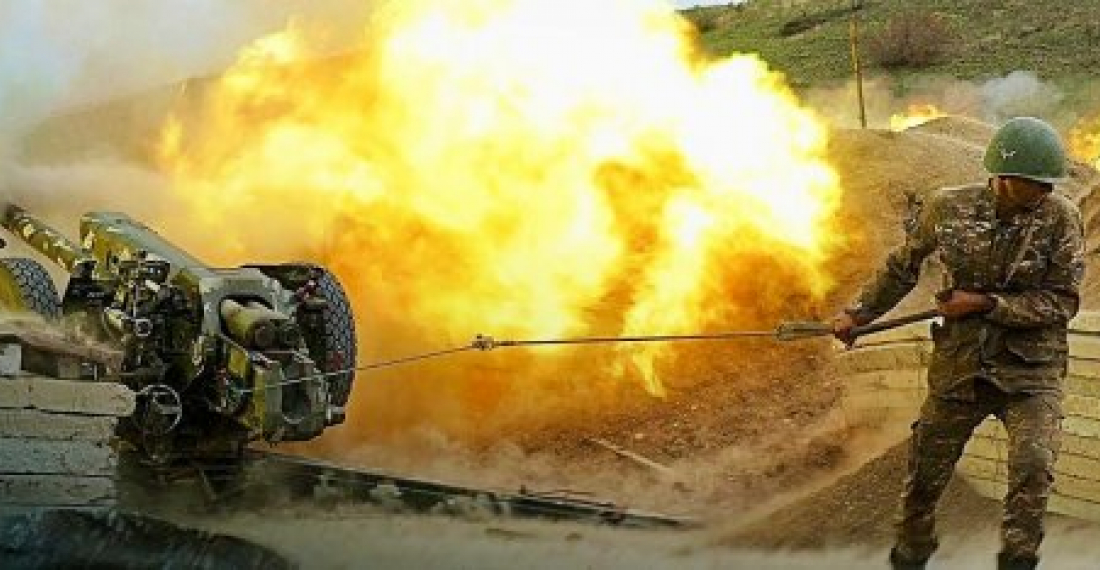Armenia and Azerbaijan on Sunday (25 October) agreed once more to stop their hostilities, after American mediated talks in Washington DC.
A statement issued by the State Department said:
Armenian Foreign Minister Zohrab Mnatsakanyan and Azerbaijani Foreign Minister Jeyhun Bayramov met with Deputy Secretary of State Stephen E. Biegun on October 24, 2020 and reaffirmed their countries’ commitment to implement and abide by the humanitarian ceasefire agreed in Moscow on October 10, which were reaffirmed in the statement issued from Paris on October 17, in accordance with the October 1, 2020 joint statement of United States President Donald J. Trump, French President Emmanuel Macron, and Russian President Vladimir Putin. The humanitarian ceasefire will take effect at 08:00 a.m. local time (12:00 a.m. EDT) on October 26, 2020. The United States facilitated intensive negotiations among the Foreign Ministers and the Minsk Group Co-Chairs to move Armenia and Azerbaijan closer to a peaceful resolution of the Nagorno-Karabakh conflict.
This is the third cease fire agreed between the sides iduring the month of fighting. Earlier ceasefires brokered by Russia and France were broken soon after they came into effect.
In the meantime the co-chairmen of the OSCE Minsk process, who represent the three mediating countries (France, Russia and the United States) also issued a statement after their meeting with the Armenian and Azerbaijani foreign ministers in Washington DC. In their statement .
"the Co-Chairs urged the sides to take immediate steps to implement all aspects of the October 10 Moscow Joint Statement in accordance with their commitments, noting that they had reaffirmed these commitments with Paris on October 18. The Co-Chairs also reminded the sides of the October 1, 2020 joint statement of United States President Donald J. Trump, French President Emmanuel Macron, and Russian President Vladimir Putin, as well as the October 5 joint statement of Secretary of State Secretary of State of the United States of America Michael R. Pompeo, Minister for Europe and Foreign Affairs of France Jean-Yves Le Drian, and Minister of Foreign Affairs of the Russian Federation Sergey Lavrov, calling on the sides to cease hostilities immediately and to resume substantive negotiations to resolve the Nagorno-Karabakh conflict under the auspices of the OSCE Minsk Group Co-Chairs.
During their intensive discussions, the Co-Chairs and Foreign Ministers discussed implementing an immediate humanitarian ceasefire, possible parameters for monitoring the ceasefire, and initiating discussion of core substantive elements of a comprehensive solution, in accordance with the October 10 Joint Statement. The Co-Chairs and Foreign Ministers agreed to meet again in Geneva on October 29 to discuss, reach agreement on, and begin implementation, in accordance with a timeline to be agreed upon, of all steps necessary to achieve a peaceful settlement of the Nagorno-Karabakh conflict in accordance with the basic principles accepted by the leaders of Azerbaijan and Armenia."
The ceasefire came into effect at 0800 local time (0500 CET) but within the first hour both sides accused each other of violating it.
source: commonspace.eu







